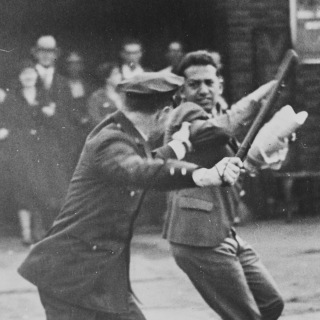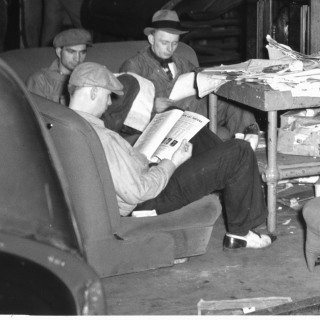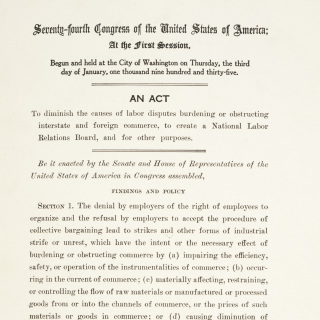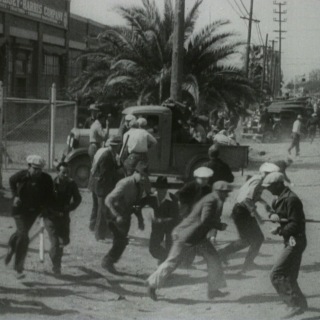National Labor Relations Act 1935
After a wave of strikes, Congress looked for ways to bring peace and stability to labor relations. Senator Robert F. Wagner sponsored successful legislation that created the National Labor Relations Board (NLRB). The National Labor Relations Act established an employee’s right to collective bargaining, to strike, and to picket, and gave the NLRB authority to supervise elections to decide if workers in a place of employment wanted to be represented by a union. The board could investigate and stop unfair labor practices, such as discharging employees for union membership. After the Wagner Act, organized labor strongly backed President Franklin Roosevelt and pro-New Deal candidates in the 1936 elections.



